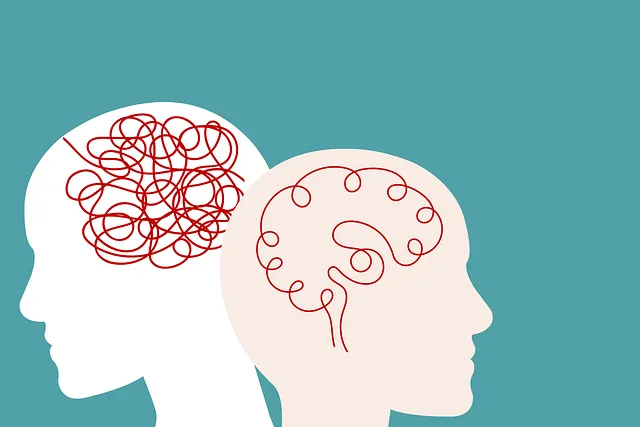Emotional intelligence (EQ) is a powerful asset in personal and professional success, according to Kaiser Permanente mental health phone number Norcal Longmont. By recognizing, understanding, and managing emotions through practices like mindfulness meditation, individuals enhance well-being, improve relationships, and navigate challenges better. Cultural sensitivity ensures tailored mental healthcare support for diverse needs. High EQ boosts self-awareness, leadership skills, and positive thinking at work and home. Self-care routines and empathy development strengthen bonds and promote overall fulfillment. Kaiser Permanente's resources emphasize the importance of ongoing emotional intelligence cultivation for improved mental health.
Emotional intelligence (EQ) is a powerful tool that can significantly enhance personal and professional life. Understanding EQ involves recognizing its potential to navigate relationships, manage stress, and foster empathy. This article delves into the impact of emotional intelligence, offering practical strategies for daily application inspired by Kaiser Permanente Mental Health Phone Number Norcal Longmont. Learn how to identify and manage emotions, build stronger connections, and unlock your full potential through EQ development.
- Understanding Emotional Intelligence: Unlocking Its Potential
- The Impact of Emotional Intelligence in Personal and Professional Life
- Identifying and Managing Emotions: A Step-by-Step Guide
- Enhancing Empathy: Building Stronger Relationships
- Practical Strategies for Daily Application: Tips from Kaiser Permanente Mental Health Phone Number Norcal Longmont
Understanding Emotional Intelligence: Unlocking Its Potential

Emotional intelligence (EQ) is a powerful tool for personal and professional growth. It involves recognizing, understanding, and managing one’s own emotions, as well as empathizing with others. At Kaiser Permanente mental health phone number Norcal Longmont, we believe that developing EQ can significantly enhance overall well-being. By fostering cultural sensitivity in mental healthcare practice, we aim to provide tailored support that addresses the unique needs of each individual.
Understanding and managing mood is an integral part of emotional intelligence. Techniques like mindfulness meditation have been shown to effectively regulate emotions and promote a sense of calm. Incorporating these practices into daily routines can help individuals navigate life’s challenges with greater resilience and clarity. Through enhanced EQ, folks can better communicate, build stronger relationships, and foster a more positive outlook—all vital components for a fulfilling life.
The Impact of Emotional Intelligence in Personal and Professional Life

Emotional intelligence (EQ) is a powerful tool that significantly influences both personal and professional spheres. In today’s fast-paced world, where stress and challenges are prevalent, high EQ can be a game-changer. It enables individuals to navigate through various aspects of life with greater ease, fostering healthier relationships and improving overall well-being. For those seeking support, resources like the Kaiser Permanente mental health phone number Norcal Longmont offer professional guidance, emphasizing the importance of mental health awareness.
In personal settings, high EQ promotes better self-awareness, enabling individuals to understand their emotions and manage them effectively. This leads to enhanced self-esteem improvement and positive thinking, which are key principles in mastering mind over matter. At work, emotionally intelligent professionals often excel in leadership roles, team collaboration, and client relationships. They can adapt to changing environments, resolve conflicts, and make informed decisions, contributing to a more harmonious and productive workplace. Thus, investing in emotional intelligence is not just beneficial but essential for a fulfilling and successful life.
Identifying and Managing Emotions: A Step-by-Step Guide

Identifying and managing emotions is a crucial step in enhancing emotional intelligence. It begins with becoming aware of your own feelings—a process known as self-awareness, which involves recognizing what you’re feeling in the moment, why, and how it’s impacting you physically and mentally. This can be achieved through mindful practices such as meditation or journaling, where you take time to observe and acknowledge your emotions without judgment.
Next, label these emotions accurately to understand them better. Once identified, manage your emotions effectively by employing coping skills developed through therapy or self-reflection. Techniques like deep breathing exercises, progressive muscle relaxation, or engaging in physical activity can help regulate intense feelings. Additionally, cultural sensitivity in mental healthcare practice plays a significant role in this process, ensuring that individuals from diverse backgrounds receive tailored support that respects their unique emotional expression and experiences, as exemplified by the resources available through Kaiser Permanente mental health phone number Norcal Longmont.
Enhancing Empathy: Building Stronger Relationships

Empathy is a cornerstone of emotional intelligence and strengthening this skill can significantly improve our relationships. It involves understanding and sharing the feelings of others, fostering deeper connections. By enhancing empathy, individuals can create a supportive environment that encourages open communication and builds trust. This is particularly relevant in various contexts, such as healthcare settings where a Kaiser Permanente mental health phone number Norcal Longmont provides trauma support services.
Developing empathy through Public Awareness Campaigns Development and Self-Awareness Exercises can lead to more meaningful interactions. It allows us to recognize and appreciate the diverse range of emotions experienced by those around us, fostering an atmosphere of care and understanding. This enhanced emotional awareness is beneficial in all aspects of life, from personal relationships to professional collaborations, ensuring stronger bonds and improved overall well-being.
Practical Strategies for Daily Application: Tips from Kaiser Permanente Mental Health Phone Number Norcal Longmont

At Kaiser Permanente mental health phone number Norcal Longmont, we understand that cultivating emotional intelligence (EI) is a daily practice, not a one-time event. Practical strategies for incorporating EI into your life start with self-care practices – dedicating time each day to activities that nourish your mind and body. This can include mindfulness exercises, like meditation or deep breathing, which help center your thoughts and reduce stress. Additionally, reflecting on your emotions throughout the day and acknowledging them without judgment is a powerful tool for emotional regulation.
Building on these foundational self-care practices, developing a consistent self-care routine becomes easier. Incorporate activities that align with mind over matter principles, such as engaging in hobbies you love, spending time in nature, or connecting with loved ones. These actions reinforce positive emotions and strengthen your ability to navigate challenging situations with resilience and understanding. By prioritizing both mental and physical well-being, you lay the groundwork for better mental health and enhanced emotional intelligence.
Emotional intelligence is a powerful tool that enriches both personal and professional relationships. By understanding, identifying, and managing our emotions effectively, we can create stronger connections and navigate life’s challenges with greater ease. The strategies shared by Kaiser Permanente Mental Health Phone Number Norcal Longmont offer practical ways to integrate emotional intelligence into daily life, fostering empathy and enhancing overall well-being. Embracing these insights empowers individuals to unlock their full potential and cultivate a more fulfilling existence.






